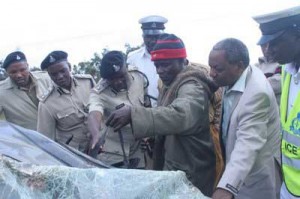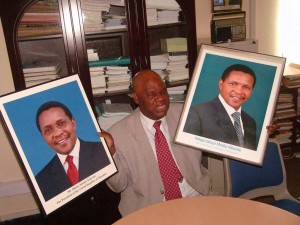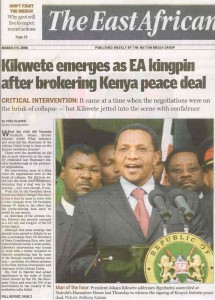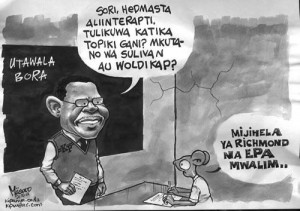Private candidates
As explained earlier in TA the High Court has supported the case that private candidates should be allowed to stand for parliament. The government has always been against this and appealed against the decision but has now lost in court again.
Opinion in the ruling CCM is reported to be divided. Some MP’s said that the verdict ought to be welcomed by the party’s leaders, as had been done by Party Vice-President Pius Msekwa. One reason given for a measure to accept private candidates was that it would do away with internal party squabbles during the nomination process, prior to elections. A former CCM Regional Commissioner said it would trim the power of the party chairpersons who sometimes behaved like gods. Speaker Samuel Sitta said that the issue had been dragging on for too long. All parties should get together and come to a conclusion – Majira.
MP for Kigoma North, Zitto Kabwe (CHADEMA) said that he would be tabling a motion in parliament supporting the court verdict to allow private candidates to stand for parliament. – Tanzania Daima.
Death of radical MP

Police inspect the crash site
One of Tanzania’s most radical MP’s, who represented Tarime in the National Assembly, Chacha Zakayo Wangwe, died in a road accident near Dodoma on July 21. He had been highly critical of the leadership of his own opposition CHADEMA, as well as the ruling CCM. In fact, according to Tanzania Daima, CHADEMA had sacked him as Deputy Chairman following allegations that he had been engineering divisions within the party and had had misunderstandings with most of the other top leaders. Many people jumped to the conclusion that he might have been ‘removed’ for political reasons.
When a delegation of CHADEMA and CCM MP’s flew from Dodoma to Tarime for the funeral they had to return to Dodoma when the family insisted that there must be a second postmortem to clearly establish the cause of his death before the burial. This postmortem was held in Tarime and family members then accepted that the MP had indeed died in an accident and allowed burial arrangements to proceed.
The driver was later charged with reckless driving and having no
licence. Then followed serious, if not sensational questions about the background of the driver which were published in the Daily News just as this issue of TA went to press.
Slaa survives attempt to remove him
An election petition filed by some members of the CCM seeking to unseat Karatu MP and Deputy CHADEMA Chairman Dr. Wilbroad Slaa, who is a strong critic of the government, was thrown out by the High Court on May 15. The three CCM petitioners claimed that the returning officer had hurriedly announced Slaa as the successful candidate without seeing all the ballot boxes and results forms and that the returning officer had refused to allow the CCM candidate to lodge complaints on irregularities. The Judge said the petitioners had failed to prove even a single allegation made against the respondents – Majira.
CUF wins in Mbeya rural
It is usually difficult to discover the results of local elections in Tanzania and, in any case, the ruling CCM party usually wins them without difficulty. However, in Mbeya Rural it is understood that the Civic United Front (CUF) was successful in the most recent elections gaining nine seats against two for CCM.



 The East African front page
The East African front page “Sorry the headmaster interrupted me – which topic were we on ? The Sullivan Conference [to be held in June 08] or the World Cup ?” “The Richmond and EPA scandals, teacher” Cartoon by Kipanya www.kipanya.co.tz
“Sorry the headmaster interrupted me – which topic were we on ? The Sullivan Conference [to be held in June 08] or the World Cup ?” “The Richmond and EPA scandals, teacher” Cartoon by Kipanya www.kipanya.co.tz